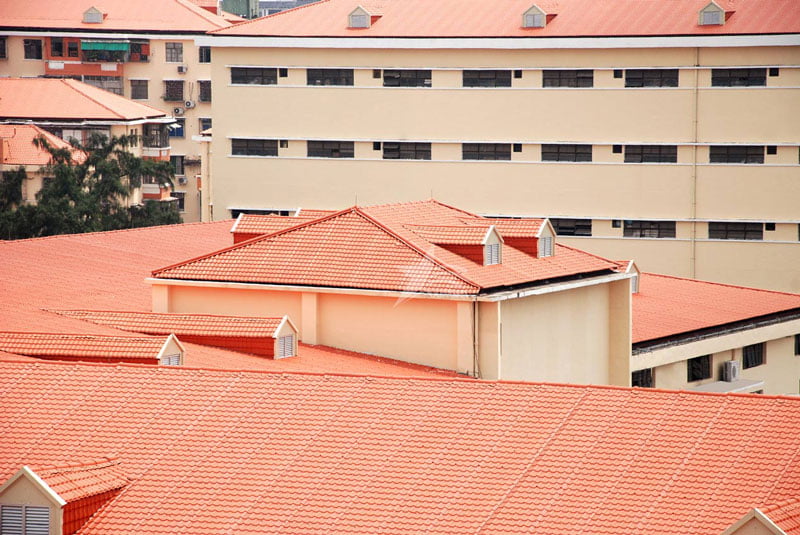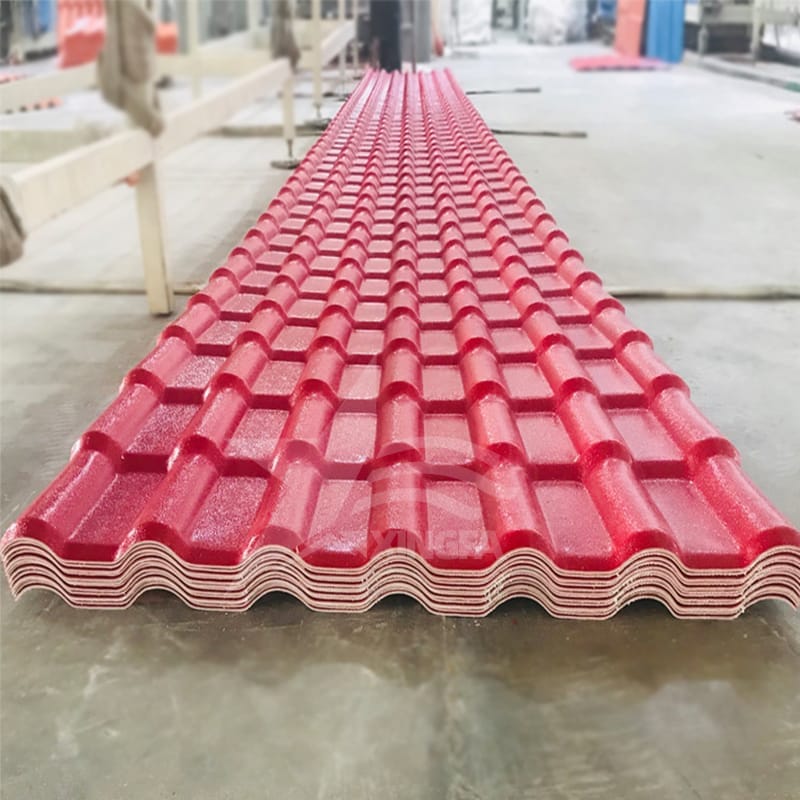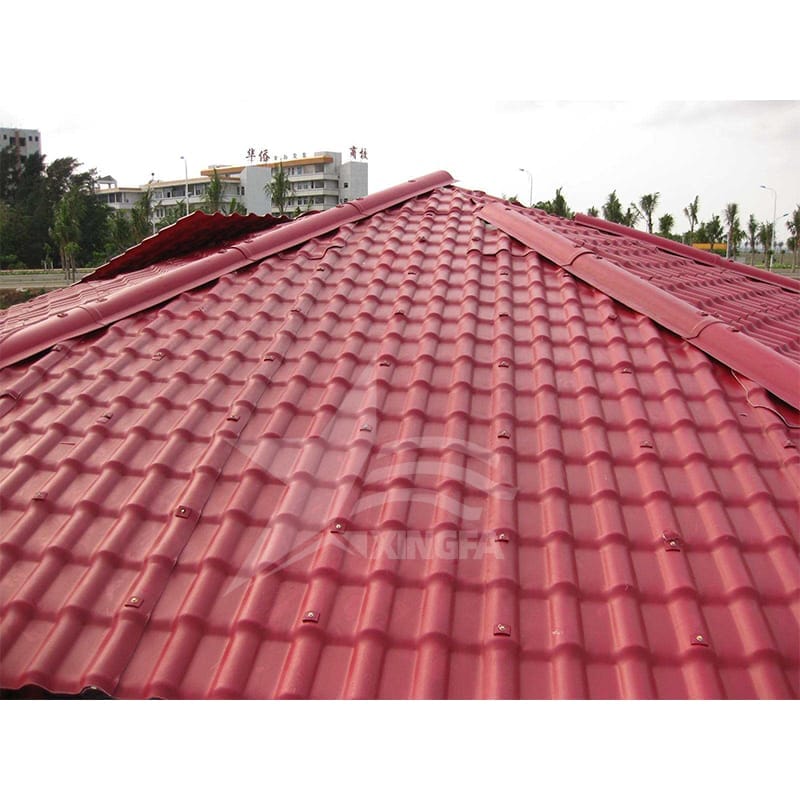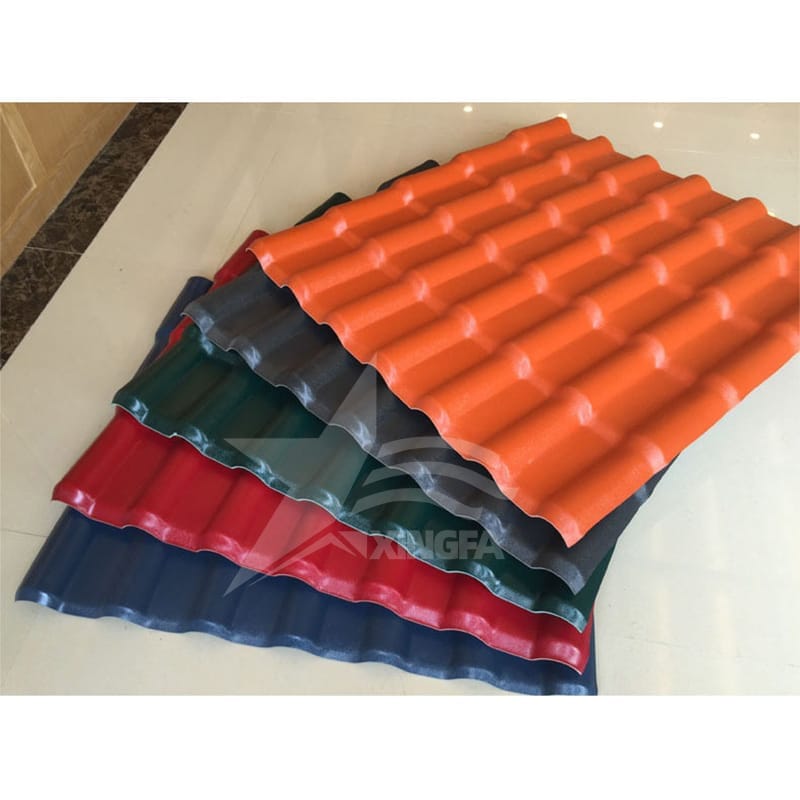In modern construction, PVC tiles have emerged as a cost-effective and durable roofing material, increasingly becoming the preferred choice for various building projects. Polyvinyl chloride (PVC) tiles, with their unique chemical stability, physical strength, and excellent thermal insulation and corrosion resistance, demonstrate extensive application potential across diverse structures.

1. Industrial Plants and Warehouses
PVC tiles are particularly suitable for constructing large-span industrial plants and warehouses due to their broad coverage and ease of installation. In high-temperature, high-humidity, or highly corrosive environments such as chemical plants, smelting plants, and steel mills, specially developed APVC anti-corrosion and weather-resistant composite tiles can effectively withstand harsh conditions, extending the roof’s lifespan and ensuring a safe and stable internal production environment.

2. Commercial and Office Buildings
PVC tiles are also ideal for the roofing of commercial and office buildings. Their rich variety of colors can enhance the aesthetic appeal of buildings while providing excellent waterproof and leak-proof functionality. Additionally, their low maintenance cost and superior thermal insulation make PVC tiles an ideal choice for office buildings, shopping malls, hotels, restaurants, and other public facilities.
3. Agricultural and Livestock Facilities
In agricultural and livestock settings, PVC tiles are used to construct barns, greenhouses, and other facilities. They offer good insulation, and their lightweight nature, ease of installation, and ease of cleaning significantly reduce construction and maintenance costs.
4. Residential Housing and Flat-to-Pitched Roof Projects
For renovating old flat-roofed houses, PVC tiles are an excellent option for “flat-to-pitched” roof projects. They effectively solve the leakage issues of traditional flat roofs, enhance thermal insulation, reduce indoor temperature fluctuations, and improve living comfort.

5. Public Infrastructure
In public places such as carports, bus shelters, and market aisles, PVC tiles are widely used due to their durability, aging resistance, and long-lasting colors. These characteristics not only meet basic shading and rain protection needs but also enhance the aesthetic and uniformity of urban landscapes.
In conclusion, PVC tiles, with their superior performance characteristics, adapt to various climatic conditions and usage environments, providing economical and practical solutions for different types of buildings. With the advancement of technology and continuous improvements in production processes, the quality and lifespan of PVC tiles will continue to improve, further expanding their application scope in the construction field.





